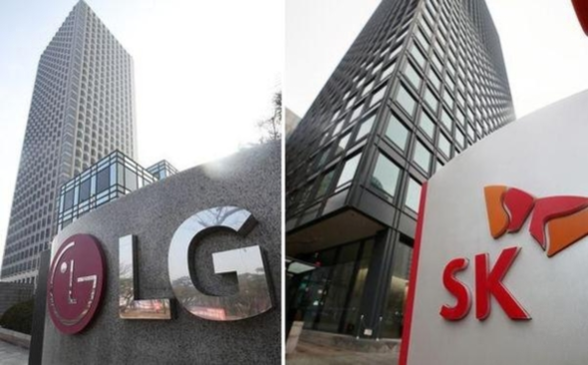Input 2021.02.27 06:00
The ITC ruling remains about a month and a half before it takes effect. If US President Joe Biden does not exercise his veto during this period, SK Innovation will be banned from producing and importing batteries in the United States for 10 years, except for Volkswagen and Ford, which received a grace period of two and four years.

These items have in common that the U.S. had difficulty in supply and demand due to the Corona 19 pandemic. The US administration plans to consider cooperating with the alliance or encouraging the production of key items in the country. It can be interpreted as reflecting the intention to prevent China’s technological rise and reduce US dependence on China.
Currently, battery factories in the United States are far short of those in China. According to’Benmark Mineral Intelligence’, there are currently 93 giga factories of lithium-ion battery cells in China. In comparison, there are four in the United States, a difference of almost 23 times. The company predicts that by 2030, there will be 47 more in China, while six in the US.

An official from SK Innovation said, “Electric vehicle batteries are being discussed as a national strategic item by the Biden government that values environment-friendly, and if SK’s Georgia battery plant closes, there is a possibility that the right to veto will be exercised because there is no other alternative.” “We regret that the ITC ruling focused on the destruction of evidence, not the fact of infringement of trade secrets, and we will do our best to correct the decision through a presidential review that remains.”
Georgia Governor Brian Kemp said, “ITC’s recent decision puts SK Innovation’s 2,600 jobs and investments in innovative manufacturing at risk. The long-term prospects of SK Innovation’s factory in Jackson County, Georgia will be significantly affected.” He also made a statement.
After the ITC ruling, Jim Parley, Ford’s chief executive officer (CEO) of Ford, a major consumer of SK Innovation, said, “The agreement between the two suppliers of (electric vehicle batteries) will ultimately be in the best interests of US (electric vehicle) manufacturers and workers” Said. Volkswagen also asked the US government to “make use of electric vehicle batteries produced by SK Innovation for at least four years,” saying, “We suffered unintended damage due to a dispute between two Korean battery suppliers.”

Losing the appeal puts SK at a more disadvantageous position in negotiations with LG. Since 2010, there have been a total of six lawsuits for infringement of trade secrets in which an import ban order was issued in the final ITC decision, and five of them have appealed, but the results have never changed.
An industry insider said, “It seems unlikely that the president’s veto is likely to be exercised because ITC gave SK Innovation a grace period for supplying batteries for two and four years, respectively, only when supplied from factories in the United States such as Volkswagen and Ford. It is true that looking at the recent actions of the US government, it is true,” he said. “If the two companies do not rush to an agreement, there is a high possibility that the market will be taken over by Chinese battery companies in the future, and measures are urgent.”
